News
Saputo revenues rise 8.8%
13 Jun 2016Canadian dairy company Saputo has reported its financial results for its fourth quarter which ended 31 March. Consolidated revenues for the quarter were $CAN2.734 billion, an increase of $220.2 million or 8.8% compared to the same quarter last fiscal year.

Canadian dairy company Saputo has reported its financial results for its fourth quarter which ended 31 March. Consolidated revenues for the quarter were $CAN2.734 billion, an increase of $220.2 million or 8.8% compared to $2.514 billion for the same quarter last fiscal year.
In the Canada Sector, revenues increased by approximately $23 million or 2.5% as compared to the corresponding quarter last fiscal year. The inclusion of revenues from the Woolwich Acquisition and a favourable product mix increased revenues during the quarter. Sales volumes of cheese and cream categories were higher, while traditional milk and butter categories experienced a decrease. The disposal of the Bakery Division in the fourth quarter of fiscal 2015 reduced revenues as compared to the same quarter last fiscal year. USA Sector revenues increased by approximately $201 million or 16.1% as compared to the corresponding quarter last fiscal year. Higher sales volumes in both US divisions, as well as the inclusion of the Woolwich Acquisition, increased revenues. The fluctuation of the average block market per pound of cheese and the butter market in the fourth quarter of fiscal 2016, as compared to the corresponding quarter last fiscal year, decreased revenues by approximately $14 million. The weakening of the Canadian dollar versus the US dollar increased revenues by approximately $148 million. Revenues from the International Sector decreased by approximately $4 million or 1.1% as compared to the corresponding quarter last fiscal year. In the Dairy Division (Argentina), lower sales volumes and lower selling prices in the export market decreased revenues as compared to the same quarter last fiscal year. Additionally, the devaluation of the Argentinian peso versus the Canadian dollar had a negative impact on revenues as compared to the same quarter last fiscal year. The decrease was partially offset by higher selling prices and higher sales volumes in the domestic market. Revenues of the Dairy Division (Australia) increased due to the inclusion of the EDC Acquisition and higher sales volumes in both domestic and export markets, partially offset by the decline in the international cheese and dairy ingredient market prices. Dairy Ingredients Division revenues were lower in the fourth quarter of fiscal 2016, as compared to the same quarter last fiscal year due to depressed export market sales prices and lower sales volumes. The fluctuation of the Canadian dollar versus the foreign currencies used in the International Sector negatively impacted revenues by approximately $33 million, as compared to the same quarter last fiscal year.Consolidated EBITDA totalled $313.1 million for the quarter, an increase of $81.1 million or 35.0% compared to the $232.0 million for the same quarter last fiscal year. The EBITDA of the Canada Sector increased by approximately $26 million or 31.6% in comparison to the same quarter last fiscal year. The increase is due to lower ingredients costs, lower warehousing and logistical costs and decreased administrative expenses as a result of the allocation of shared expenses totalling $8 million in the USA and International sectors. Also, a favourable product mix increased EBITDA as compared to the same quarter last fiscal year. The inclusion of the Woolwich Acquisition positively impacted EBITDA. This increase was offset by a lower international dairy ingredient market. The EBITDA of the USA Sector increased by approximately $50 million or 35.5% in comparison to the same quarter last fiscal year. In the Cheese Division (USA), higher sales volumes, a decrease in ingredients costs, as well as better efficiencies increased EBITDA as compared to the corresponding quarter last fiscal year. The Dairy Foods Division (USA) benefitted from increased sales volumes, a favourable product mix, lower warehousing and logistical costs, as well as decreased operational costs attributed to better cost control. The Sector benefitted from procurement efficiencies that had a positive impact on EBITDA. During the quarter, a variation in the average block market per pound of cheese versus the corresponding quarter last fiscal year had a favourable impact on the realization of inventories and an unfavourable impact on the absorption of fixed costs. The relationship between the average block market per pound of cheese and the cost of milk as raw material was favourable. These combined market factors, partially offset by lower dairy ingredient market and unfavourable margins associated with the higher commodity prices in the Dairy Foods Division (USA), increased EBITDA by approximately $9 million, as compared to the same quarter last fiscal year. The weakening of the Canadian dollar versus the US dollar had a positive impact on EBITDA of approximately $15 million. The EBITDA of the International Sector increased by approximately $5 million or 57.5% for the quarter ended March 31, 2016 in comparison to the same quarter last fiscal year. In the Dairy Division (Argentina), higher sales volumes combined with favourable market conditions increased EBITDA, as compared to the same quarter last fiscal year. In the Dairy Division (Australia), the decrease in market selling prices and the fact that the cost of milk as raw material did not follow this decrease negatively affected EBITDA. This EBITDA decrease was partially offset by higher volumes in both domestic and export markets. The inclusion of the operations of the EDC Acquisition positively impacted EBITDA. EBITDA of the Dairy Ingredients Division was comparable to the corresponding quarter last fiscal year. As a result of the decrease in market selling prices, inventory was written-down by approximately $5 million. In the same quarter of last fiscal year, inventory was written-down by approximately $3 million.Related news
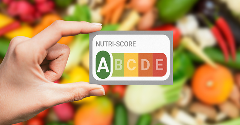
Danone removes NutriScore from products
20 Sep 2024
Following an algorithm update that gives some of its sweetened drinks a worse score, Danone has removed the front-of-pack label, NutriScore, from all of its products – putting profit before public health, say campaigners.
Read more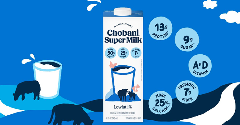
Chobani develops shelf-stable, prebiotic-enriched Super Milk
12 Sep 2024
Chobani has launched a prebiotic-enriched, shelf-stable, high-protein dairy milk to support people in disaster zones who need a nutritious drink that does not require refrigeration.
Read more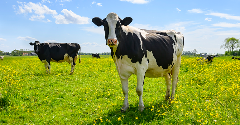
Tesco trials methane mitigation supplement for dairy cattle
5 Sep 2024
Tesco is trialing a methane-reducing feed supplement for one of its key UK dairy farms, sustainable UK milk producer Grosvenor Farms.
Read more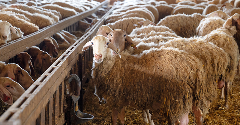
Sheep and goat plague: A new threat to Greece’s feta production
27 Aug 2024
A recent goat and sheep plague outbreak threatens feta production in Greece. The flagship product accounts for roughly 10% of the country’s food exports, but Greek authorities say there is no cause for concern.
Read more
Nestlé develops a new fat reduction method for dairy ingredients
26 Aug 2024
A Brazil-based Nestlé research and development team has developed a way to reduce the fat in milk powder by as much as 60%, without impacting the key characteristics that consumers enjoy.
Read more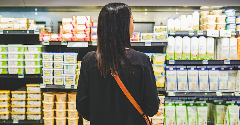
Dutch court rules against plant-based butter brand ‘Roombeter’: Only dairy products allowed to use the word ‘cream’
26 Jul 2024
A Dutch court has ruled against Upfield’s plant-based butter, Roombeter, stating that its use of the word ‘room’ (cream) in the product name violates European regulations that protect dairy-related terms allowed for dairy products only.
Read more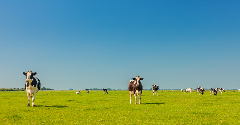
How will Denmark’s 2030 carbon tax impact farming?
12 Jul 2024
Denmark has announced plans to implement Europe’s first carbon tax on agriculture from 2030, targetting the farming sector’s CO2 emissions. How will it be implemented and how have farmers reacted?
Read more
Sweden updates front-of-pack Keyhole labelling rules
11 Jul 2024
The Swedish Food Agency has announced updates to the voluntary Keyhole logo, used in four Nordic countries, following recommendations to improve nutrition labelling.
Read more
Consumers dislike faba beans’ sensory profile
3 Jun 2024
Consumers display low acceptance of faba beans, with sensory properties such as bitterness a core concern, a study suggests. However, for product varieties such as cocoa-free chocolate, this attribute could prove to be a benefit.
Read more
Food scientists uncover new way to preserve nutrient and flavour quality
29 May 2024
Researchers have developed a method that guarantees food safety for low-moisture products, such as dried milk, while maximising quality by retaining vitamins, minerals, and flavours, they say.
Read more